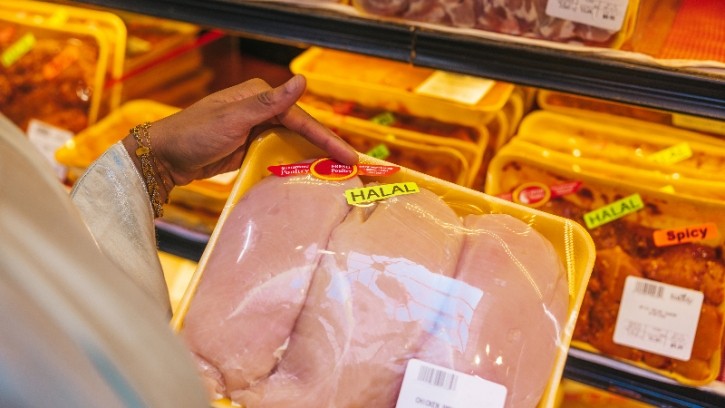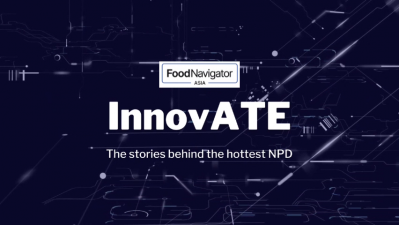Halal food market poised for growth driven by international partnerships, localised production and regulatory standards

According to the State of the Global Islamic Economy 2023/24 Report, Muslim consumers’ spend on food and beverages increased by 9.6% in 2022 to reach US$1.4tn, up from US$1.28tn in 2021.
This is forecasted to reach US$1.89tn by 2027, growing at a CAGR of 6.1%.
Notably, Indonesia remains the largest market by spend, while Egypt has moved up to second position and Bangladesh ranks third.
Amid persisting food security and inflation concerns, there have been positive developments driving the halal sector, particularly in the Middle East and South East Asia.
These include the strengthening of intra-Organisation of Islamic Cooperation (OIC) strategic partnerships.
For instance, Saudi Arabia’s Halal Products Development Company (HDPC), a subsidiary of the Public Investment Fund (PIF), and the Islamic Development Bank (IsDB) have signed a MoU to develop a halal product ecosystem.
They will collaborate in analysing data pertaining to effective halal models, markets, and industry solutions.
Another example is Indonesia, which has established cooperation with Iran in halal product assurance. Five countries that signed similar MoUs with Indonesia earlier are namely Chile, Argentina, Hungary, Belarus, and Turkey.
At the same time, increasing partnerships between global food companies, government agencies, and OIC countries are expected to further expand the halal industry.
Malaysia’s Halal Development Corporation Berhad (HDC) and the Korea Trade-Investment Promotion Agency (KOTRA) have inked an MoU to stimulate bilateral trade and investment, and facilitate market access between the two nations.
It is also aimed at increasing Korean exports, such as hanwoo beef, to other predominantly Muslim-majority markets, as the country’s Ministry of SMEs and Startups is actively helping local businesses obtain halal certification.
In addition, the report stated that the Indonesian Ulema Council (MUI) has inaugurated a representative office in Japan, with the purpose of providing rapid certification of Japanese products for compliance with Islamic law.
Furthermore, Kobe beef, one of Japan’s best-known food products, is expected to enter Saudi Arabia with halal certification.
Other big names that have made foray into OIC markets include Ireland-based company Kerry, which has opened a 21,500sq ft facility in Jeddah, Saudi Arabia.
Global food giant Kraft Heinz has reaffirmed its commitment to Indonesia with facility upgrades, while exploring meat replacement opportunities.
Boosting local production
Efforts to improve self-sufficiency have been particularly evident in the Gulf Cooperation Council (GCC) region, where substantial investments are being made to localise farming, production, and food processing.
In May 2023, the headquarters of the International Islamic Food Processing Association (IFPA) moved from Astana, Kazakhstan to Dubai.
Over the past 12 months, Abu Dhabi’s KEZAD Group entered a USD272m deal with Al Ghurair Foods for three mega food processing projects, while Saudi Arabia’s Agricultural Development Fund signed financing contracts worth USD246.8m in the feed industry, animal production, and dairy sectors.
The HPDC has partnered with food and agricultural product manufacturer Tanmiah Food Company to promote the localisation of Saudi Arabia’s halal production industry, and support its development within the region and globally.
To advance the growth of the country’s camel dairy industry, PIF launched a new company, Sawani Company, last year.
It has also launched Al Madinah Heritage Company (MHC) to enhance the production and distribution of Saudi Ajwa dates both locally and internationally, in addition to other date varieties, to meet rising demand.
Embracing tech for traceability
Initiatives are also underway to elevate the halal food sector’s efficiency and traceability.
Various stakeholders, including government and industry players, are increasingly harnessing blockchain technology to enable consumers to trace the sources of food and beverages.
The Saudi Food and Drug Authority (SFDA) has cooperated with the Digital Government Authority (DGA) to carry out a Proof-of-Concept experiment for the use of blockchain.
In the private sector, Singapore-headquartered OneAgrix and eight partners have developed an end-to-end supply chain traceability solution that will provide consumers with food origin information and verification of authenticity.
Greater emphasis on compliance
The growing demand for halal food has led non-OIC countries to introduce halal regulations. Among these is Belarus, which has obtained accreditation for certifying halal products.
All kosher and halal food certifiers and manufacturers in the US must register with the New York State Department of Agriculture and Markets. This registry will enable consumers to search for such foods in the country.
Similarly, India has established a government-regulated mandatory halal certification system. Under this system, meat products for halal export must come from facilities with valid certificates issued by a Quality Council of India (QCI)-accredited body.
The Australian Fatwa Council has ruled that the controlled atmospheric stunning (CAS) slaughter method is not suitable for halal consumption under Islamic laws and principles.
In various countries, including Indonesia, UAE, Egypt, Brazil, and Thailand, seminars and training sessions have been organised for local companies and farmers to provide information on halal certification requirements and its significance for increasing exports.











